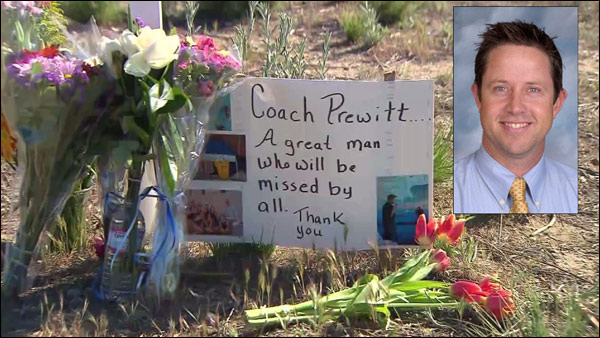The ancient Spartans refused to give sway to their fears of a foreign invasion by building walls. “The walls of our country are the tips of our spears,” they reportedly claimed. The Spartan army was feared such that attacks against their interests would be dealt with outside their homeland.
But it is understandable: one ruminates on the enemy attacking and taking over one’s country, and one wishes to make that fear an impossibility by building a wall. Rather than using finesse, skill, and courage to deal with possible threats, you simply build an imposing barrier at the border and deign to sleep soundly at night. But how did that work out in history? The Maginot Line was a disaster: the French, terrified of another brutal war with Germany, built a series of fortifications and then relaxed behind them, believing themselves to be safe. The Germans just drove their panzer tanks around them in 1940 and conquered and occupied France. The Maginot Line was the expensive appearance of protection which did not in fact protect. The Great Wall of China was in similar fashion far from an impenetrable barrier against Mongol invasions. The same could be said about the Romans and Hadrian’s Wall: it offered protection only as long as stout soldiers manned it, backed by a country with the proper fighting spirit. Just building a wall and relaxing into a supine position does not work. Over time the Romans were overrun by the barbarians hordes. The various walls and border controls on the southern border of the United States are often breached by desperate immigrants trying to get into the country.
I bring this up because I have been thinking so much about college for my daughters. My oldest will soon be a high school senior, and that means the college application season is upon her (and our family). I am very much confused about what to do. I think and think about what would be the best next step for her (and us). I am unsure as to what that might be. This essay is an effort to remediate this frustration.
My wife and I have saved her whole life to pay for her college. Every month we make a payment to her tax-free 527 college savings account. And that is better than most parents in the United States who have nothing, or close to nothing, saved for the college expenses of their children. But it is not enough to cover everything: the total is in the tens of thousands of dollars, not the hundreds. And I wonder, “Will we get good value for our money?”
Because the American college system requires buyers to be very savvy consumers. Universities are happy to take your money, give your kids room and board, deliver instruction and assign term papers, and then confer a diploma at the end. But American universities are not particularly cost conscious, with federal loans buttressing their business model. “Do you want your beautiful child to get a college degree and a solid start in the race of life? Do you want them to be happy and successful? Well, pay up, sucker! And borrow against your house to pay us – or take money out of your retirement!” I suspect it is a little like buying a house in California: you pay WAY too much money for something of MIDDLING value, circumstances depending. But a person buys that house because they feel they “have to,” and everyone else is doing it. Are we a “chump” for doing so? Is this a smart financial decision?
Should we spend $160,000 over four years to send my daughter to UC Davis to get what most likely will be a pretty run–of-the-mill education? Move heaven and earth financially and mobilize wider family wealth to leverage a college education for her to graduate from UC San Diego?
So much of the answer revolves around the student: Is she ambitious? Will she take advantage of what is being offered at university? Or sleep-walk through the four expensive years? Is she the type of hyper-focused college student primed to go on to medical or law school? Or the opposite? How much value does a specific university offer for the money they charge? Are you getting your money’s worth?
Those are all very complicated questions.
But I suspect many American parents are taken advantage of by expensive schools which exploit parental fears for their offspring to enroll students.
College used to be a force for socioeconomic mobility in this country. Returning soldiers and sailors after WWII could go to college almost for free on the GI Bill, and their educations would pay off handsomely both for themselves individually and the country overall. So it continued for some 40 years until college costs began to expand exponentially. Years ago my father attended his 50th college reunion at Harvard where he personally heard Harvard President Drew Faust talk with himself and other alumni. One gentleman asked Faust, “I had my accountants run the numbers, and even accounting for inflation the tuition here has gone up several fold since we attended here. How do you account for this steep increase in price for a Harvard education?” My father told me President Faust was unapologetic in defending what Harvard charged. “We pay for student mental health services for all our students. We have a full study abroad program. This is what an education costs nowadays.” There has been serious mission creep in American universities over time and they handle assorted duties they did not previously, and that costs money. There are the sexual assault trainers and Title IX administrators. Then there is the Diversity, Inclusion, and Equity bureaucrats; there are so many more non-teaching administrators compared to 30 years ago who never see the inside of a classroom, compared to the teaching professors who do. Then there are the expensive new research buildings, football stadiums, athletic scholarships, exercise facilities, students dorms, etc. There are also the increasing health care costs of university employees, as well as their retirements to pay for; it all adds up. The state legislatures also subsidize higher education at a lower rate than in the past. That too makes a difference.
No wonder college costs so much more than it used to! “Pay up parents!” “Refinance your house and use any equity you have to pay us, sucka!” As a parent, it frustrates me; as a citizen, it enrages me. How much of a negative force in America is overly expensive college costs? Not a small one. I would be happy to forgo all the athletic and political accretions to the modern American university and return to the 1975 level of service, and what it cost then (next to nothing). But nobody asked me. The price of a college education today is what it is.
I have known all this for some time. I work in the education world. But now that I have a child ready to apply to college, it hurts. The pain is imminent. The colleges have me in hand where it hurts and they are getting ready to squeeze.
But it is totally true that there are a huge variety of schools in this large country, and they provide a wide spectrum of very different educations at very different prices in places as opposite as New York City and Provo, Utah. Where you go to school matters. What it costs matters. Where your child can get admitted matters. What they study matters. Whether they graduate or drop out matters.
But what is most important is the content of your child’s character, in my opinion. A young adult with the right attitude will find success almost anywhere, and a person with the wrong attitude will struggle everywhere. That is what I will focus on as a parent. First things first.
I have a friend whose son is a C+ or a B- student. A nice enough kid, but he is no world-beater as a student. His focus is elsewhere: his friends, girls, social life, sports, etc. There is nothing wrong with this, and I was a bit like this myself around that age. But his family is sending him to a private university in another state which costs approximately $80,000 a year. His education therefore after four years will total some $240,000. Wow! Is it worth it? Well, his father tells me this university markets itself as a conveyor belt of young people groomed through college to exploit the alumni networks of the school to transition into a well-paid job afterwards. Parents pay prime dollar tuition for their child to be ushered through coursework and into the world of work as supported by that university. So it is well worth the money, he claims, to ensure that your child as an adult has a place at the dinner table of upper middle class America. If you have $240,000 to spend, that is. Or if you want your child saddled with mounds of student debt.
What about those families who have no money, or next to no money? They can attend community college? Then maybe a state school? Ventura College? Cal State Fullerton? Is that the same?
Instead of an engine of socioeconomic mobility, has higher education in the United States become a reinforcer of class inequalities? Yes, I think so.
So larger questions of cost and value are important in the conversation about college in the United States today. But more important, I suspect, is the initiative of the individual student and the spark and ambition they carry within them. Just plunking down hundreds of thousands of dollars on a college education does not guarantee “easy street” for a young American. Legion are the spoiled little shits on college campuses learning next to nothing. They are far from assured in their success in the adult world outside the university. An entitled rich kid can be their own worst enemy. One does not have to look far to encounter this phenomenon.
Conversely, if a young person is “hungry” and hard-working and driven – if their values are solid, and their feet are solidly set on this earth – then they will find their way. The determining factor is not daddy’s wealth or lack thereof. The most important fact is not where they went to college, or even if they went at all. It is the ability of the individual to have the character and “grit” to weather the ups and downs of a college education and later adult life. “Character is destiny,” claimed Heraclitus. This is true inside the classroom and out, in the workplace and at home.
And this formation of character and fortitude in a young person is entirely within the power of a parent to affect. So that is what I will focus on primarily as a father (in addition to helping to pay some, but not all, of college tuition costs). I will do what I can to enable my daughter to take those core values away from our family home and off to college as she moves into her freshman dorm. My wife and I are not raising passive little princesses to be set up for a life of ease and privilege. We are raising intelligent and active young women who are the drivers of success in their own life’s journeys.
So the Spartans did not concern themselves with building walls against foreign invaders or constructing fortifications for fear of the future. Their walls were the tips of the spears of their young men. It served them well enough.
I hope to do the same with my daughters in a semi-similar situation. I won’t obsess about paying for an ultra-expensive university education, or leaving them a profitable business or trust fund to cushion them from economic insecurity. I will not seek to allay fears for my daughters primarily by opening up my wallet (although money is available). Instead, I will help my daughters to find their vocation and then do all I can to support them in their life’s work.
I have confidence in them. My daughters will take the lead, not me. I have tried to raise them to be “anti-fragile” (and not “fragile,” like so many of their peers). My daughters have grit. Resilience. The whole world, and the rest of their lives, lie in front of them. It is exciting to behold.
And to my beloved daughters, who one day might read these words?
You are capable. You are strong. You are smart. You are loved. You can get it done.
And you will.
The answer does not lie outside. The answer is inside you. Set your mind on what you want and don’t rest until you have it – towards that goal you can adapt to any conditions as they evolve. You will figure it out.
Your mother and I stand by you.
Always.
As it says on the cover of my cell phone:

P.S. I recently read that the above quotation is misattributed to Miyamoto Musashi. If so, I don’t care. I like it anyway.






One Comment
Sergio
I know you may not like this, but this is why loan forgiveness is so popular right now. It’s not because kids want “free money” or have a a life free of responsiblities (either would be nice, but I digress), but they’re not getting anything out of it. It’s like you said: colleges are not cost conscious and it’s costing our students big.
With all that being said, which ever college you think you can afford for your daughters should be the one to go to.
I have a cousin whose daugther was heavily recruited by Loyola because she can play soccer well. The problem was the tuition was $60,000/year, but the University was only going to give her $28,000 as a grant. My cousin looked into Southern Indiana and said with tuition and grant, it would only cost her $3,000/year (I think) to attend. Obviously, he picked Southern Indiana for her (or she picked that as a result) and so far, it’s a great investment.
The bottom line is, schools are doing a terrible job teaching kids about money and have become wasteful as a result of it.
I know this may sound like I’m deviating, but there are reasons why people feel so jaded about higher education.